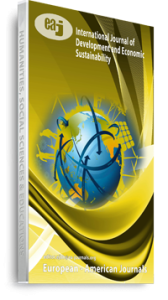This study examined the impact of capital flight on the Nigerian economy from 1986-2016 Real Gross Domestic Product and Capital Flight were used as the endogenous variables while Political instability, Amount of Looted funds, Interest Rate Differentials, Expenses on Foreign Medical Services and Education Abroad and Domestic Investment were the explanatory variables. Data for these variables were sourced from the Central Bank of Nigeria (CBN) Statistical Bulletin, World Bank Development Index, Economic and Financial Crimes Commission Bulletins, Tertiary Education Trust Fund Publications and the Federal Ministry of Information Annual Briefings and Extracts (various editions). The variables were found to be integrated of mixed order hence we confirmed the long run relationship existing among the variables using the Bounds test. The simultaneous equation model shows a negative and significant relationship between capital flight and economic growth. Domestic Investment and Interest Rate Differential both have positive relationships with Real GDP while Political Instability, looted Funds, Expenses on Foreign Education and Medical Services were found to have positive and significant impact on Capital Flight. The implication of these findings is that Capital flight have negatively impacted on Economic growth of Nigeria with Foreign Education and Medical Expenses and Looted Funds being the major channels through which huge capital leave the country. It was recommended that our education and health infrastructures should be adequately funded and maintained. Also, the government should ensure good governance and prosecution of corrupt officials in order to discourage capital and encourage domestic investments.
Keywords: Capital Flight, Interest Rate Differentials, Looted Funds, economic growth

